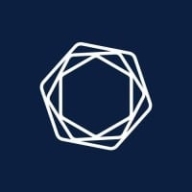


Microsoft Defender for Cloud and Tenable Cloud Security are competing in the cloud security space, focusing on enhancing security and ensuring compliance. Microsoft Defender for Cloud is preferred for its pricing and support, while Tenable Cloud Security excels in feature comprehensiveness, often making it the superior choice in feature comparisons.
Features: Microsoft Defender for Cloud is integrated seamlessly with Azure, providing advanced threat protection, comprehensive visibility, and control over cloud infrastructure. Its ease of use and compatibility with Microsoft products enhance its integration capabilities. Tenable Cloud Security excels in vulnerability management, extensive security monitoring, and real-time alerts. Its asset management capabilities and support for DevOps integration, including Shift-Left Security practices, are notable.
Room for Improvement: Microsoft Defender for Cloud could enhance its multi-cloud support and provide more robust third-party integration options. Simplifying its user interface and improving its documentation could further enhance user experience. Tenable Cloud Security might benefit from improving deployment speed and streamlining integration processes. Enhancements in its reporting features and reducing complexity in its configuration would enhance its usability.
Ease of Deployment and Customer Service: Microsoft Defender for Cloud offers streamlined deployment within Azure and strong customer support, facilitating quick setup and reliable assistance. Tenable Cloud Security provides extensive support but might require more involved deployment due to its comprehensive features. Customers value Microsoft Defender for Cloud's simplicity in integration and Tenable's in-depth support and guidance.
Pricing and ROI: Microsoft Defender for Cloud is considered budget-friendly, offering a competitive initial cost and attractive ROI for Azure users. In contrast, Tenable Cloud Security, although higher in initial pricing, justifies the cost by significantly enhancing security posture, offering valuable insights, and strong ROI for organizations focused on detailed security management.
The detailed information PingSafe gives about how to fix vulnerabilities reduces the time spent on remediation by about 70 to 80 percent.
After implementing SentinelOne, it takes about five to seven minutes.
Cloud Native Security does offer ROI.
Defender proactively indexes and analyzes documents, identifying potential threats even when inactive, enhancing preventative security.
Identifying potential vulnerabilities has helped us avoid costly data losses.
The biggest return on investment is the rapid improvement of security posture.
When we send an email, they respond quickly and proactively provide solutions.
They took direct responsibility for the system and could solve queries quickly.
Having a reliable team ready and willing to assist with any issues is essential.
Since security is critical, we prefer a quicker response time.
The support team was very responsive to queries.
They understand their product, but much like us, they struggle with the finer details, especially with new features.
With Element, if you need a feature, you can discuss it with them, and if implementation is possible, you will have that feature within a month or two, depending on complexity.
I would rate it a 10 out of 10 for scalability.
Scalability is no longer a concern because Cloud Native Security is a fully cloud-based resource.
I would rate the scalability of PingSafe 10 out of 10.
We are using infrastructure as a code, so we do not have any scalability issues with Microsoft Defender for Cloud implementation because our cloud automatically does it.
It has multiple licenses and features, covering infrastructures from a hundred to five hundred virtual machines, without any issues.
Defender won't replace our endpoint XDR, but it will likely adapt and support any growth in the Microsoft Cloud space.
It's a reliable solution that the organization is increasingly adopting for its robust features and security.
We contacted Cloud Native Security, and they addressed it in a day.
The only downtime we had was when switching from V1 to V2 but it was smooth.
Defender's stability has been flawless for us.
Microsoft Defender for Cloud is very stable.
Microsoft sometimes changes settings or configurations without transparency.
In situations where there was a platform issue, they fixed it immediately and provided a complete explanation for the occurrence.
If they can merge Kubernetes Security with other modules related to Kubernetes, that would help us to get more modules in the current subscription.
As organizations move to the cloud, a cloud posture management tool that offers complete cloud visibility becomes crucial for maintaining compliance.
I would also like to see Cloud Native Security offer APIs that allow us to directly build dashboards within the platform.
Microsoft, in general, could significantly improve its communication and support.
It would be beneficial to streamline recommendations to avoid unnecessary alerts and to refine the severity of alerts based on specific environments or environmental attributes.
The artificial intelligence features could be expanded to allow the system to autonomously manage security issues without needing intervention from admins.
Adding capabilities for the scanner to automatically pick up changes and add assets automatically would be valuable.
The only complaint I hear in the market is from resellers that Tenable management team in Brazil doesn't play fair with the channel and resellers.
I believe the enterprise version costs around $55 per user per year.
There are some tools that are double the cost of Cloud Native Security.
I recall Cloud Native Security charging a slightly higher premium previously.
Every time we consider expanding usage, we carefully evaluate the necessity due to cost concerns.
We appreciate the licensing approach based on employee count rather than a big enterprise license.
Microsoft Defender for Cloud is pricey, especially for Kubernetes clusters.
This helps visualize potential attack paths and even suggests attack paths a malicious actor might take.
The infrastructure-as-code feature is helpful for discovering open ports in some of the modules.
This tool has been helpful for us. It allows us to search for vulnerabilities and provides evidence directly on the screen.
The most valuable feature for me is the variety of APIs available.
This feature significantly aids in threat detection and enhances the user experience by streamlining security management.
The most valuable feature is the recommendations provided on how to improve security.
The automatic integration capabilities, particularly with DNS, Azure, and AWS, are extremely valuable.
Perhaps the best functionalities are related to promoting a deeper analysis of the environment where applications are running in terms of creating a double armor of security to block threats that may come in the cloud with Tenable Cloud Security.
The best features Tenable Cloud Security offers in my experience are automatic scanning, frequent scanning, and automatic finding, which I find valuable.
| Product | Market Share (%) |
|---|---|
| SentinelOne Singularity Cloud Security | 4.6% |
| Microsoft Defender for Cloud | 10.9% |
| Tenable Cloud Security | 2.9% |
| Other | 81.6% |



| Company Size | Count |
|---|---|
| Small Business | 46 |
| Midsize Enterprise | 20 |
| Large Enterprise | 53 |
| Company Size | Count |
|---|---|
| Small Business | 26 |
| Midsize Enterprise | 7 |
| Large Enterprise | 45 |
| Company Size | Count |
|---|---|
| Small Business | 5 |
| Midsize Enterprise | 2 |
| Large Enterprise | 5 |
SentinelOne Singularity Cloud Security offers a streamlined approach to cloud security with intuitive operation and strong integration capabilities for heightened threat detection and remediation efficiency.
Singularity Cloud Security stands out for its real-time detection and response, effectively minimizing detection and remediation timelines. Its automated remediation integrates smoothly with third-party tools enhancing operational efficiency. The comprehensive console ensures visibility and support for forensic investigations. Seamless platform integration and robust support for innovation are notable advantages. Areas for development include improved search functionality, affordability, better firewall capabilities for remote users, stable agents, comprehensive reporting, and efficient third-party integrations. Clarity in the interface, responsive support, and real-time alerting need enhancement, with a call for more automation and customization. Better scalability and cost-effective integration without compromising capabilities are desired.
What are SentinelOne Singularity Cloud Security's standout features?SentinelOne Singularity Cloud Security is deployed in industries needing robust cloud security posture management, endpoint protection, and threat hunting. Utilized frequently across AWS and Azure, it assists in monitoring, threat detection, and maintaining compliance in diverse environments while providing real-time alerts and recommendations for proactive threat management.
Microsoft Defender for Cloud is a comprehensive security solution that provides advanced threat protection for cloud workloads. It offers real-time visibility into the security posture of cloud environments, enabling organizations to quickly identify and respond to potential threats. With its advanced machine learning capabilities, Microsoft Defender for Cloud can detect and block sophisticated attacks, including zero-day exploits and fileless malware.
The solution also provides automated remediation capabilities, allowing security teams to quickly and easily respond to security incidents. With Microsoft Defender for Cloud, organizations can ensure the security and compliance of their cloud workloads, while reducing the burden on their security teams.
Tenable Cloud Security is a comprehensive solution designed to help organizations secure their cloud environments across various platforms, including AWS, Azure, and Google Cloud. It offers continuous visibility, compliance management, and threat detection to ensure that cloud infrastructure and applications are protected from vulnerabilities and misconfigurations.
Tenable Cloud Security exemplifies a comprehensive Cloud-Native Application Protection Platform (CNAPP) by providing a unified solution that covers the entire cloud security lifecycle, from development to runtime. This platform is designed to address vulnerabilities, misconfigurations, threats, and compliance risks across multi-cloud environments, making it an essential tool for organizations adopting cloud-native architectures. In practice, Tenable Cloud Security integrates security into the development process through its shift-left approach, particularly with Infrastructure as Code (IaC) security. This ensures that security measures are embedded early in the development lifecycle, allowing teams to identify and mitigate vulnerabilities before they reach production. Once in production, the platform continues to provide real-time visibility into cloud environments, enabling continuous monitoring and proactive threat detection.
The solution's comprehensive protection spans various aspects of cloud security, including the identification and remediation of misconfigurations, automated compliance management, and advanced threat intelligence. By automating these processes, Tenable Cloud Security reduces the manual effort required to manage cloud security, freeing up resources for more strategic initiatives.
What are the key features of Tenable Cloud Security?
What are the benefits of using Tenable Cloud Security?
Tenable Cloud Security is particularly valuable in industries with stringent regulatory requirements, such as finance, healthcare, and retail. For example, in the financial sector, it helps organizations ensure compliance with regulations like PCI-DSS while safeguarding sensitive data across cloud environments.
In summary, Tenable Cloud Security is a robust CNAPP solution that integrates security throughout the cloud lifecycle, providing comprehensive protection and operational efficiency for cloud-native environments.
We monitor all Cloud-Native Application Protection Platforms (CNAPP) reviews to prevent fraudulent reviews and keep review quality high. We do not post reviews by company employees or direct competitors. We validate each review for authenticity via cross-reference with LinkedIn, and personal follow-up with the reviewer when necessary.